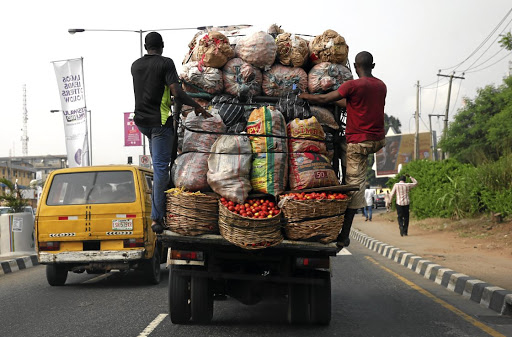 Nigeria’s headline inflation rate slowed to 32.15% in August 2024, down from 33.40% in July, marking a decrease of 1.25 percentage points, according to the latest Consumer Price Index (CPI) report from the National Bureau of Statistics (NBS). This is the second consecutive month of declining inflation.
Nigeria’s headline inflation rate slowed to 32.15% in August 2024, down from 33.40% in July, marking a decrease of 1.25 percentage points, according to the latest Consumer Price Index (CPI) report from the National Bureau of Statistics (NBS). This is the second consecutive month of declining inflation.
However, on a year-on-year basis, the August 2024 inflation rate was still 6.35 percentage points higher than the 25.80% recorded in August 2023, indicating significant inflationary pressures over the past year. On a month-on-month basis, inflation in August stood at 2.22%, slightly lower than July’s 2.28%, signaling a slower pace of price increases.
Food inflation continued to rise, reaching 37.52% year-on-year in August 2024, an 8.18 percentage point increase compared to August 2023’s 29.34%. On a month-on-month basis, food inflation was recorded at 2.37%, a slight dip from 2.47% in July. The average annual food inflation rate for the 12 months ending August 2024 was 36.99%, up from 25.01% in August 2023.
Core inflation, which excludes volatile items such as food and energy, rose to 27.58% year-on-year in August 2024, up by 6.43 percentage points from the 21.15% recorded a year earlier. The highest increases under core inflation were observed in rents, intracity transportation, medical services, and accommodation. Month-on-month, core inflation reached 2.27%, slightly higher than July’s 2.16%.
In urban areas, inflation reached 34.58% year-on-year in August 2024, a 6.89 percentage point increase compared to August 2023. Month-on-month, urban inflation was 2.39%, down slightly from 2.46% in July. In rural areas, the inflation rate stood at 29.95% year-on-year, up 5.85 percentage points from August 2023. Month-on-month rural inflation also decreased slightly to 2.06% from July’s 2.10%.

NNPC Ltd Enters Final Stages Of Preparation For Public Listing
Tinubu Appoints Four New Members To NCDMB Governing Council
House Considers Bill To Expand Lagos Local Governments From 20 To 57
INEC Rejects Petition To Recall Senator Natasha Akpoti-Uduaghan